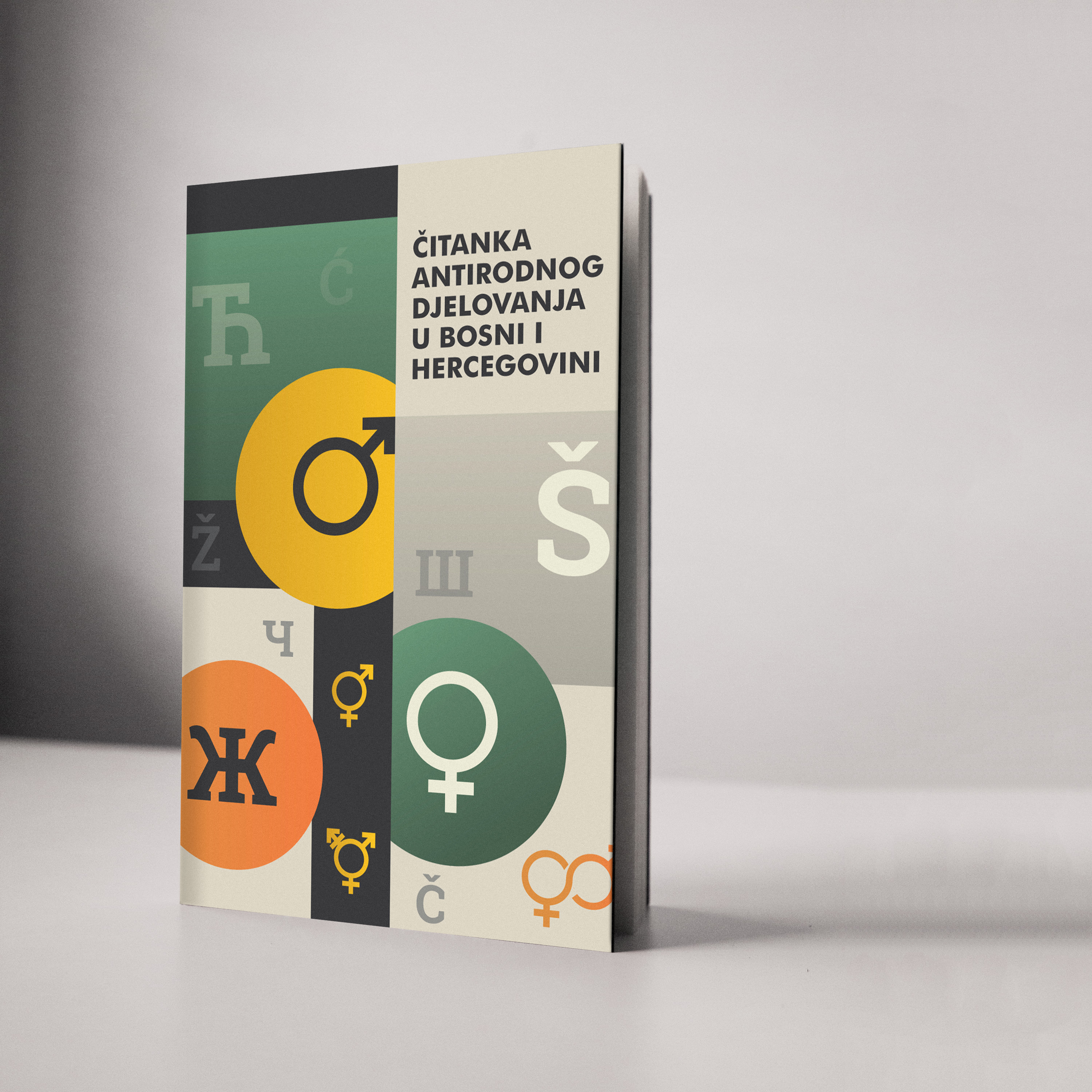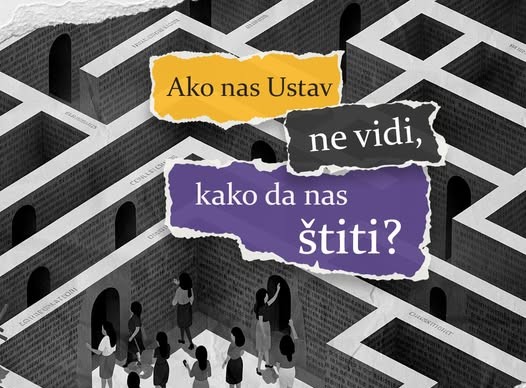“This publication is rightly called the Reader of Anti-Gender Action in Bosnia and Herzegovina, and it is very important that it appears right now, because the strength and possibility of anti-gender action is increasing”, says Rubina Čengić
In this publication, we bring four articles that explain/shed light on the activities of anti-gender actors in BiH and the world, their targets and goals. The authors we invited to write the texts did not have a pre-defined and strictly defined structure and methodology, but only an instruction to, in accordance with their expert knowledge and insights, offer a reading that will help a wider and more diverse audience understand that the word gender does not threaten anyone, but, on the contrary, helps us understand the relationships and roles of men and women in society; that human rights are universal and that the response to the changes which are rapidly and daily occurring in the world cannot be a return to the past and the deprivation and denial of the rights of women and other minority groups.
In the text “Still an Urgent Approach Is Needed”, Roman Kuhar explains the emergence of anti-gender movements, which originally originated from the Catholic Church, but which have evolved over the years by building alliances with various, mostly right-wing populist parties, the academic community and civil society. Kuhar emphasizes that the success of anti-gender actors should be viewed through the prism of the political, social and economic crises that are shaking countries around the world and where they have offered an answer, or a way out of these crises, through a return to normal and natural. They have declared gender ideology as the enemy of this normal and natural, which in anti-gender discourse can mean same-sex marriage, reproductive rights, sexual education, adoption, abortion, political correctness as well as distrust in democracy, science and institutions such as the United Nations, the European Union or the World Health Organization and the acceptance of international agreements such as the Istanbul Convention. What is encouraging is the view that the actions of anti-gender actors should be understood as an opportunity to rethink progressive politics, that is, to create new spaces of freedom that must be based on strong social policy and solidarity.
In the text “Torment by Language”, Marija Runić analyzes the attacks on the word gender and points out that, today, no society can be understood without this term and the meanings it carries, helping us to name and explain the roles, behaviors and power relations in society. He points out that the use of gender-sensitive language is increasingly becoming a part of journalistic and educational practices, and that the artificial intelligence, ChatGPT-4, is extremely gender-sensitive. The author emphasizes that gender-sensitive language is a much broader concept that cannot be reduced only to listing nouns in the feminine gender and that first of all implies a non-discriminatory and inclusive use of language that makes women and other social groups visible in language and that recognizes and suppresses sexist language and gender stereotypes that reduce women to sexual objects or devalue their professional achievements.
How do advocates of non-vaccination correspond with anti-gender narratives, explains Jelena Kalinić in the text “Anti-gender and Anti-Scientific Movements Spread Panic and Indecisiveness about Vaccination”. Claiming to protect freedom of choice, anti-vaxxers ignore the scientific facts that vaccines can prevent or avert many deadly diseases or diseases that have incurable consequences, such as polio, writes Kalinić. She points out that, recently, these anti-vaxxer groups have been attacking the human papillomavirus (HPV) vaccine, which prevents infections and diseases caused by this virus, of which cervical cancer is the fourth most common cancer in women globally. They blame the HPV vaccine for the promiscuity of young people and call it a women’s vaccine, although it protects men equally from diseases caused by this virus. Kalinić concludes that the vaccination process is not gender neutral either, that advocates of non-vaccination undermine trust in institutions and science, and also impose dangerous narratives such as the one that the only way to reduce the risk of infections is for a woman to be dependent on one partner for her entire life.
In the text “The Strategy for Countering Anti-Gender Narratives and Demands”, Selma Alispahić proposes several different strategies, and the key is work on changing awareness and increasing understanding of the topics of gender, sexuality, equality and human rights, as well as the anti-gender movements themselves. In this context, an important role is played by educational institutions, from the lowest to the highest level, but also by state institutions that must work on training and sensitizing their employees on application of laws and international standards for the protection of human rights. An integral part of resistance strategies, as the author states, are both civic and activist initiatives, as well as art, in the form of film, music, exhibitions or performances, which promotes inclusivity and opposes rigid gender norms. In addition to the development of critical thinking and media literacy, Alispahić also proposes intensifying cooperation between the LGBTIQ+ community, feminist organizations, state and international institutions in order to create a national framework for monitoring, sanctioning and regulating hate speech and activities on the Internet.
Publication can be downloaded here:





